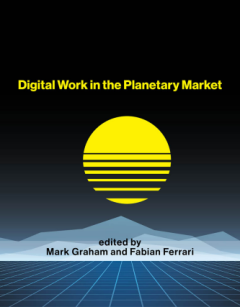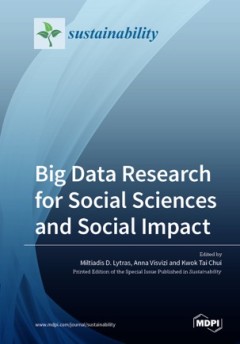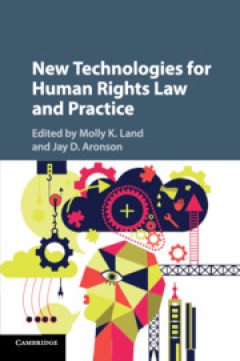Filter by

Harnessing public research for innovation in the 21st century: an internation…
Universities and public research institutes play a key role in the innovation ecosystem. Many countries have implemented national strategies to support the commercialization of knowledge produced by public institutions, to help take their innovations and scientific breakthroughs to market and ultimately boost economic growth. Research bodies themselves have also introduced practices to support …
- Edition
- -
- ISBN/ISSN
- 9781108842792
- Collation
- 544 p
- Series Title
- Intellectual property, innovation and economic development
- Call Number
- 607.2 ARU h

Cultural-historical perspectives on collective intelligence: patterns in prob…
In the new era of digital communication, collective problem solving is increasingly important. With the internet and digitalization of information, large groups can now solve problems together in completely different ways than are possible in offline settings (Le?vy, 1999). These novel online technologies and practices challenge our conceptions of individualized human problem solving in various…
- Edition
- -
- ISBN/ISSN
- 9781108981361
- Collation
- 468 p
- Series Title
- Current perspectives in social and behavioral sciences
- Call Number
- 337.3 BAL c

The realities and futures of work
What do we know about the current realities of work and its likely futures? What choices must we make and how will they affect those futures? Many books about the future of work start by talking about the latest technology, and focus on how technology is going to change the way we work. And there is no doubt that technology will have huge impacts. However, to really understand the direction in …
- Edition
- -
- ISBN/ISSN
- 9781760463113
- Collation
- xvi + 406 p
- Series Title
- -
- Call Number
- 331 PEE r

Root, tuber and banana food system innovations : value creation for inclusive…
This open access book describes recent innovations in food systems based on root, tuber and banana crops in developing countries. These innovations respond to many of the challenges facing these vital crops, linked to their vegetative seed and bulky and perishable produce. The innovations create value, food, jobs and new sources of income while improving the wellbeing and quality of life of the…
- Edition
- -
- ISBN/ISSN
- 9783030920227
- Collation
- XXXV, 561 p
- Series Title
- -
- Call Number
- 633.091724 THI r

Digital work in the planetary market
Understanding the embedded and disembedded, material and immaterial, territorialized and deterritorialized natures of digital work. Many jobs today can be done from anywhere. Digital technology and widespread internet connectivity allow almost anyone, anywhere, to connect to anyone else to communicate and exchange files, data, video, and audio. In other words, work can be deterritorialized at a…
- Edition
- -
- ISBN/ISSN
- 9780262543767
- Collation
- viii, 356p. : ill
- Series Title
- -
- Call Number
- 306.36 DIG d

Big data research for social sciences and social impact
A new era of innovation is enabled by the integration of social sciences and information systems research. In this context, the adoption of Big Data and analytics technology brings new insight to the social sciences. It also delivers new, flexible responses to crucial social problems and challenges. We are proud to deliver this edited volume on the social impact of big data research. It is one …
- Edition
- -
- ISBN/ISSN
- 9783039282210
- Collation
- ix, 403p.; ill
- Series Title
- -
- Call Number
- 371.33 BIG b

Harnessing Public Research for Innovation in the 21st Century : An Internatio…
Universities and public research institutes play a key role in enabling the application of scientific breakthroughs and innovations in the marketplace. Many countries – developed and developing alike – have implemented national strategies to support the application or commercialization of knowledge produced by public research organizations. Universities and public research institutes have i…
- Edition
- -
- ISBN/ISSN
- 9781108904230
- Collation
- xxxv, 544 p ; ill
- Series Title
- -
- Call Number
- 338.926 HER A

China's challenges in moving towards a high-income economy
With its per capita income surpassing US$10,000, China has now drawn up ambitious plans to further lift its income to the level of developed countries. Yet various constraints need to be overcome if China is to build on the achievements of the last 40 years and further boost its growth potential. Besides these constraints, the year 2020 saw human societies hit heavily by the COVID-19 pandemic a…
- Edition
- -
- ISBN/ISSN
- 9781760464530
- Collation
- xv, 232 p. : ill
- Series Title
- -
- Call Number
- 330.951 SON c

New industrial urbanism : designing places for production
Since the Industrial Revolution, cities and industry have grown together; towns and metropolitan regions have evolved around factories and expanding industries. New Industrial Urbanism explores the evolving and future relationships between cities and places of production, focusing on the spatial implications and physical design of integrating contemporary manufacturing into the city. The book e…
- Edition
- -
- ISBN/ISSN
- 9780367855000
- Collation
- 267p. : ill.
- Series Title
- -
- Call Number
- 307.76 TAL n

New technologies for human rights law and practice
New technological innovations offer significant opportunities to promote and protect human rights. At the same time, they also pose undeniable risks. In some areas, they may even be changing what we mean by human rights. The fact that new technologies are often privately controlled raises further questions about accountability and transparency and the role of human rights in regulating these ac…
- Edition
- -
- ISBN/ISSN
- 9781316838952
- Collation
- xiv, 334 p. ; ill
- Series Title
- -
- Call Number
- 342.085 LAN n
 Computer Science, Information & General Works
Computer Science, Information & General Works  Philosophy & Psychology
Philosophy & Psychology  Religion
Religion  Social Sciences
Social Sciences  Language
Language  Pure Science
Pure Science  Applied Sciences
Applied Sciences  Art & Recreation
Art & Recreation  Literature
Literature  History & Geography
History & Geography